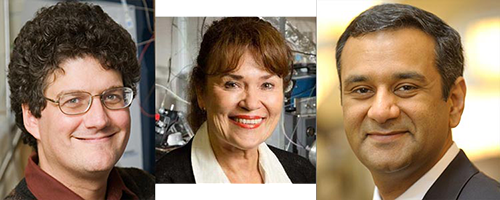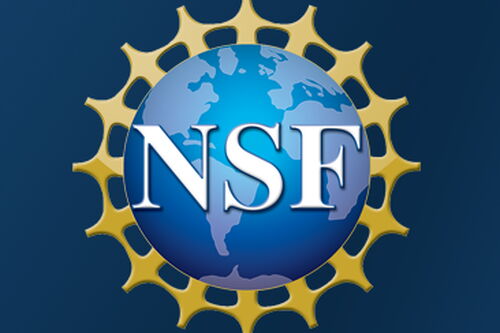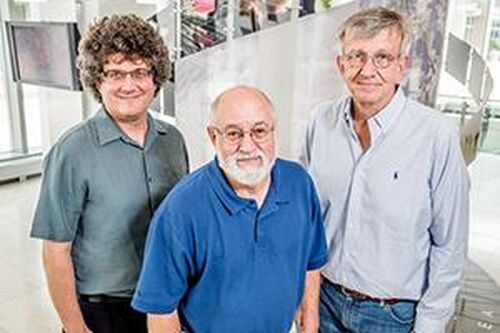New ideas in the fight against neurological diseases

An interdisciplinary team of researchers at Illinois have received $2 million over three years from the National Institutes of Health to develop new insights in neuroscience and create diagnostic and therapeutic tools in fighting neurological diseases.
Jonathan Sweedler, professor of chemistry, Martha Gillette, professor of cell and developmental biology, and Rohit Bhargava, professor of bioengineering, received the grant from the Brain Research through Advancing Innovative Neurotechnologies (BRAIN) Initiative Initiative at NIH. They are members of the Beckman Institute for Advanced Science and Technology.
The cross-disciplinary project allows researchers to use new methods in examining molecular and chemical structures of the brain with innovative imaging techniques. Sweedler and Gillette work in Beckman’s NeuroTech Group, while Bhargava is from the Bioimaging Science and Technology Group.
Sweedler said their work directly addresses an unmet need for the BRAIN initiative, will lead to new neuroscience insights, and will help create novel diagnostic and therapeutic opportunities.
“A major goal of the BRAIN Initiative is to develop tools to characterize the brain at the cell and even subcellular level,” he said. “Our efforts will develop a novel analytical platform that integrates two of the most powerful chemical characterization approaches, mass spectrometry and Raman scattering microscopy, and adapts them to work with select individual cells of the brain.”
Chemicals found in and released from specific brain cells impact how systems of neurons interact, and their misregulation can cause neurological disease.
“Thus it may be surprising that for many of the cells in the brain, inventories of the important molecular players are not available, which is one key area our efforts address,” Sweedler said.
The BRAIN Initiative was introduced by President Obama in 2013 to revolutionize our understanding of the human brain, and to combat neurological and psychological disorders, such as Alzheimer’s, Parkinson’s, autism, depression, traumatic brain injuries and other afflictions. Several agencies and research centers are involved in the project, with NIH allocating more than $80 million toward the initiative in FY 2015.








